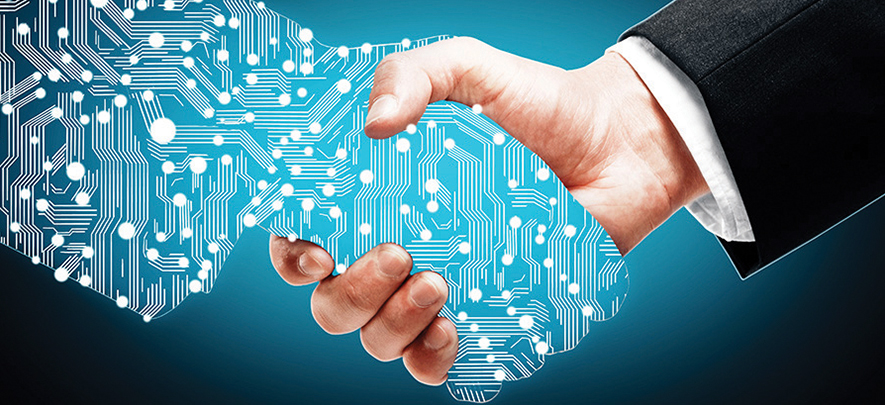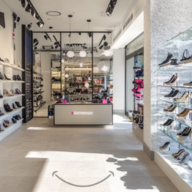Let the machines in

Employment & HR
385 week ago — 8 min read
There are diverse opinions in the market about Artificial Intelligence (AI) Fear mongers on social media say it may wipe out industry. Then there are those who are optimistic about the new age of technological advancement we’re ushering into that relies on machines doing our jobs better than us. Still others fear that the risks outweigh the benefits. Whichever side you lean, there’s one thing nobody is denying — the inevitability of Artificial Intelligence in every aspect of our lives.
Let’s talk about how the Human Resources (HR) function is embracing AI.
Ground reality
Having worked closely with Chief Human Resource Officers and top HR executives of companies across different industries for over four years, we came across some hard truths and beliefs that shook us to our core. We learnt that HR isn’t given enough value in an organisation and its objectives and initiatives are limited to rudimentary core functions of staffing, compensation and benefits, and workforce management.
Despite people being the backbone of a company, the only department working to ensure they are engaged well, have a great work experience and don’t leave the organisation when unhappy, is not a business priority— We found this fundamentally flawed. And have a theory about why that is.
The classic HR challenges of retaining top talent, employee engagement, measuring the culture of an organisation have all been abstract and highly subjective so far. With direct objective benefits far too few, several organisations have a majority of their resources and efforts devoted to core HR functions, leaving behind little to experiment and explore the esotericism of employee experience.
It’s also hard to deliver objective results and outcomes. Demystifying human psyche is not easy. To actually improve the employee experience, you need to understand how the employees are feeling at regular intervals. Let’s take a deeper look at this, shall we?
The 10,000+ people strong Acme Enterprises has retail stores all around the country. As with any retail company, Acme has to deal with a higher rate of attrition. An HR executive named Julie working at Acme recently came across a study that says “people in a company are statistically more likely to leave at certain milestones in their life cycle”. Determined to reduce talent attrition at her company by improving employee experience, Julie sets out to do something about it. Before she can figure out the problems with employee experience, she has huge challenges in front of her.
Considering regular check-ins each month:
1. She needs to have 10,000 subjective conversations each month.
2. She needs to have check-ins with employees located at remote locations.
3. She needs to ensure employees share their concerns openly and truthfully without any fear of backlash.
4. She needs to ensure ultimately action is taken upon the feedback shared by the employees. This clearly seems like a mammoth task for poor Julie.
Enter AI and Automation.
The potential
For an AI powered conversational chatbot, which is capable of understanding emotion and having insightful conversations, all this can be done in a jiffy. While such a chatbot may never be able to replace Julie, it can work 24x7 tirelessly and be the perfect assistant enabling Julie to take the right decisions and meet the right people who need attention in her organisation.
Furthermore, AI and Machine Learning can be used to derive insights out of qualitative data and generate reports in real time. SentimentAnalysis is a breakthrough AI technology that can help HR understand accurately and time how employees are feeling at scale. In a video interview on You-Tube, Jubilant Foodworks (Dunkin/Dominos) CHRO Biplob Banerjee shared his experience using chatbots in his organisation.
According to him, “At a certain level of HR complexity, most of us arrive at a situation where there is tremendous information around us. The challenge is not the quantity but how you make meaning out of that.”
Jubilant is one of the first 10 companies in India to use AI in HR and Biplob is successfully engaging employees in remote locations and define an people strategy that is proactive in nature instead of reactive.
In a similar conversation, nearbuy CEO Ankur Warikoo who too has employed AI in his company for over a year now, shared three key metrics after plugging AI in nearbuy’s HR:
1. 87% of the people interacted with the chatbot 2-6 times a year.
2. Proactively surfaced 73 employees who needed attention.
3. Achieved a 4.1 / 5 average mood score across the company
AI in HR is already out there and proving its mettle in measuring an organisation’s culture in the realtime. Since it can talk to several employees in an organisation on any day, it accurately highlights the trends and warning signs on a macro level allowing CEOs and CHROs to do a continuous culture evaluation of their organisation.
Pre-AI and automation, several organisations relied on the services of specialised companies to assess their culture. These culture audit firms did an annual survey to analyse the shortcomings of an organisation’s culture. Since the corrective measures to be implemented after the survey are huge, the companies then offered their consultancy services to help.
Often, the results of these annual surveys fail because of several cognitive biases and fallacies arising out of these surveys being a one-off thing. Some companies are not able to implement the findings of the surveys and the status quo remains unchanged till the next annual survey.
This is where AI in HR can assist CHROs with continuous culture evaluation and implementation of change—one small step at a time, rendering annual surveys obsolete.
Artificial Intelligence can upgrade HR in ways never done before, effectively making organisations more people-centric and robust. What bicycles are to legs, computers are to the brain - is what AI can be to HR
To explore business opportunities, link with us by clicking on the 'Invite' button on our eBiz Card.
Article contributed by Akshay Khetrapal for STOrai Magazine
Disclaimer: The views and opinions expressed in this article are those of the author and do not necessarily reflect the views, official policy or position of GlobalLinker.
Network with SMEs mentioned in this article
View STOrai 's profile
Other articles written by STOrai Magazine
The Art & Science of People Pleasing in Retail
11 week ago
Most read this week
Trending
Ecommerce 4 days ago














Comments (1)
Share this content
Please login or Register to join the discussion